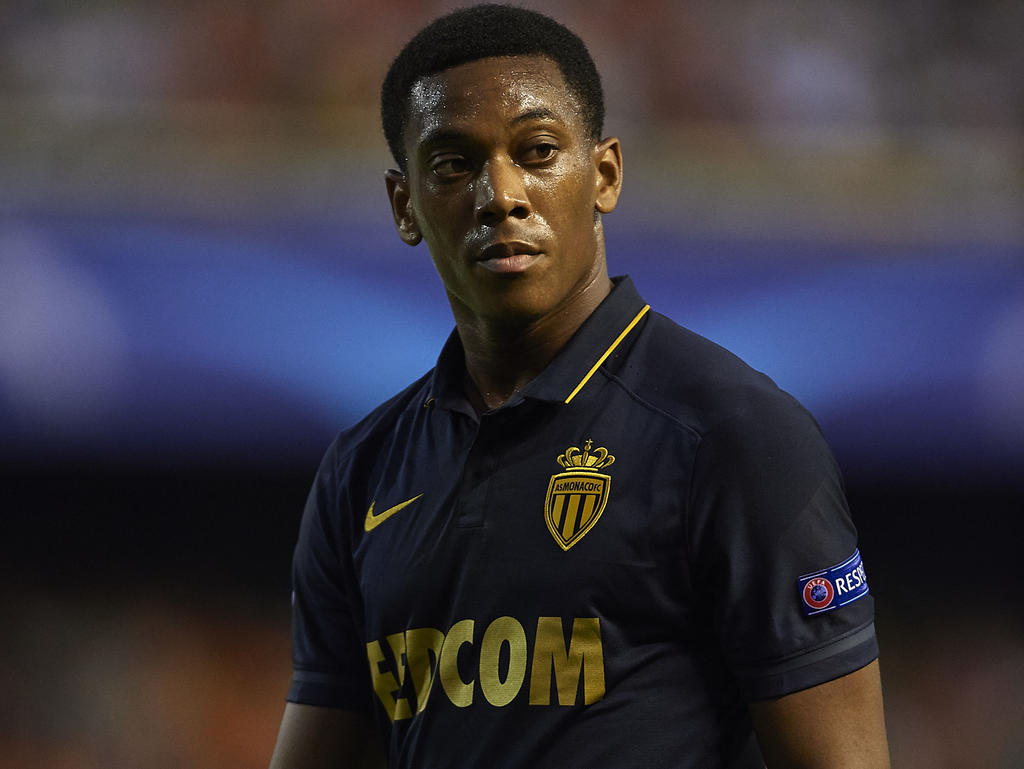English giants impose Martial law on Europe

In betting the house on 19-year-old Monaco forward Anthony Martial, Manchester United have emphasised the English Premier League's standing as the financial ogre of European football.
United's decision to gamble a reported £36 million ($55.1 million, 49 million euros) on a player with only 52 league games to his name has sparked incredulity on both sides of the Channel.
British tabloid The Sun rechristened the 20-time English champions "MADchester United", while The Times said the deal -- a world-record for a teenage player -- was "the latest sign of panic buying at Old Trafford".
In France the focus has centred on reports that the eventual fee could rise to a staggering 80 million euros, which would make Martial, in the words of L'Equipe's front-page headline, "More expensive than Zidane".
According to financial consultants Deloitte, the deal took the gross spending of England's top-flight clubs beyond the record for a single transfer window of £835 million, which was set last year.
Buoyed by the announcement earlier this year of a new domestic television rights deal worth £5.14 billion for the period 2016 to 2019, English clubs have spent more lavishly than ever before.
And with a new global TV rights package set to be announced early in 2016, experts expect total rights-related income to exceed £8 billion.
"Today it's the English clubs, and no-one else, who make the market," says French football agent Christophe Mongai, whose client Jordan Amavi joined Aston Villa from Nice last month.
"No-one can compete, except for the top five or six clubs in Europe."
Including the arrival of Martial, Louis van Gaal has now overseen a quarter of a billion pounds in transfer spending since succeeding David Moyes as United manager last year.
Manchester City, meanwhile, have spent around £140 million in the current window alone, including eye-watering deals for Kevin De Bruyne, Raheem Sterling and Nicolas Otamendi.
"What we're seeing with the likes of Manchester United, and to a lesser extent Chelsea, is they're buying talent with a view to maximising its potential in the future," Rob Wilson, a football finance expert from Sheffield Hallam University, told AFP.
"What they're finding is the players that they might have gone for, these 'marquee' signings, the values for those are so wildly inflated that they're beginning to look elsewhere."
He added: "The headlines make it sound like a huge, huge deal, but in the context of Manchester United it's not wildly outside what they might normally expect to play for emerging talent.
"Go back to Wayne Rooney: 10 years ago now, they paid around £27 million. Comparably, Wayne Rooney cost much more than Martial will cost, because it was 10 years ago and we have price inflation and you have a much smaller TV deal and much smaller revenues at all these clubs."
While big-money arrivals at United, City and Chelsea have long been the norm, it is the sight of Yohan Cabaye in Crystal Palace's colours or Xherdan Shaqiri lining up for Stoke City that hammer home England's financial might.
The structure of the Premier League's TV deals means that money is shared evenly across the division and English clubs are also reaping the rewards of slick commercial operations.
United's new kit deal with German sportswear firm Adidas is worth £750 million, on top of several commercial contracts including a £330 million sponsorship agreement with American car giant Chevrolet.
"We've seen in recent years tremendous commercial growth from the largest clubs and that's helping fuel some of this transfer spending," Alex Thorpe from Deloitte's Sports Business Group told AFP.
European governing body UEFA's financial fair play (FFP) rules have clipped English clubs' wings in recent years, with City's spending in 2014 having notably been restricted.
But with UEFA indicating that it will soften its stance regarding FFP and with revenues in English football continuing to soar, the Premier League looks set to boss the transfer market for years to come.
"As it stands, it's likely that this is a trend that will continue," adds Thorpe.
"The objective (of FFP) is to balance revenues with costs and if the revenues in the Premier League continue to increase as they are, that is going to give clubs greater scope to invest in their playing squads."





